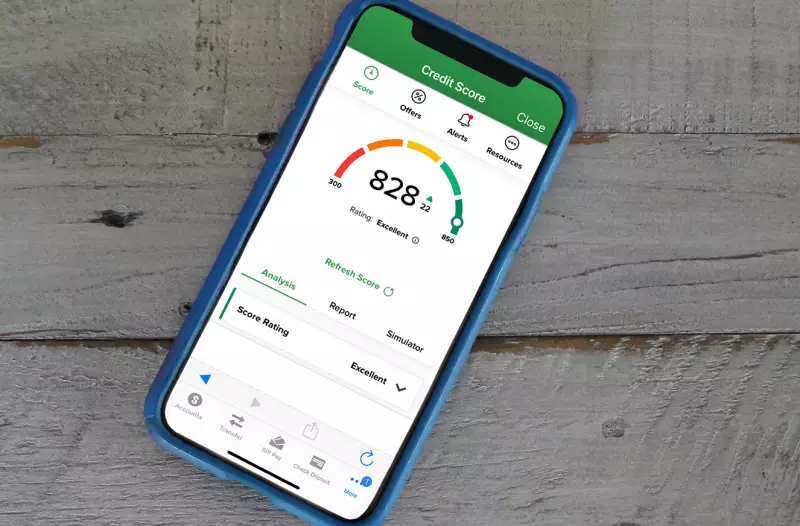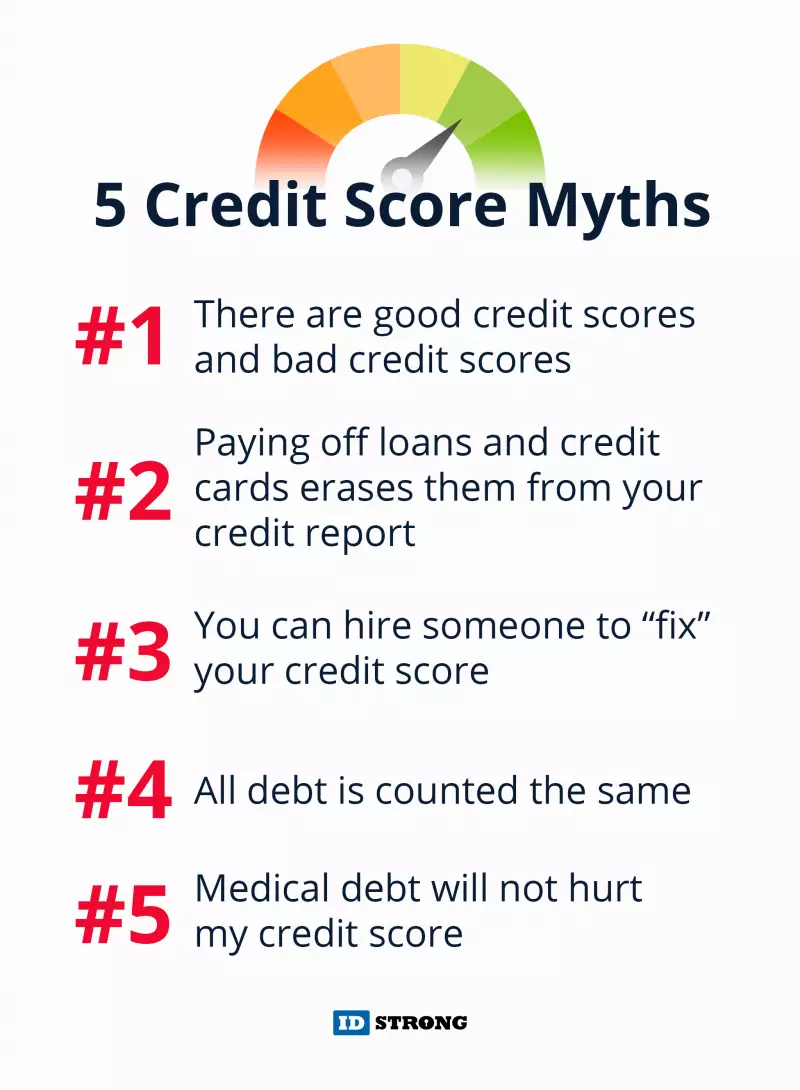Debunking Myths About Credit Scores
Table of Contents
- By Alison OLeary
- Published: May 13, 2022
- Last Updated: May 24, 2022

A credit score is a number associated with your personal money management history. Each adult who has had a credit card, a loan, or a bank account usually has a credit score. Credit scores help lenders to decide whether to loan money to a person. Credit scores are determined by the major credit reporting agencies, including Experian, Equifax, and TransUnion.
Credit reports consist of:
- Personally identifiable information.
- Work, location, education, and other public information, including any court judgments against you.
- The types of credit you have, such as mortgages, student loans, car loans, etc.
- Details on individual credit accounts, including term and payment history.
- Bank account balances.
- Records of late or missed payments and any defaults.
- Records of closed accounts.
- Information on inquiries about your account.
How to Read a Credit Report

Each person is entitled to one free copy of their credit report each year. Experts strongly suggest requesting one to make sure all of the information is accurate and correct.
Credit reports include numerical codes that indicate how many payments have been late and for what period.
It’s possible to see who has viewed your credit report. Lenders that receive applications for loans show up on reports as a “hard” inquiry. Those who seek your credit score just to send you an advertisement about credit cards show up as a “soft” inquiry.
Examples of companies that make credit report inquiries include:
- Utility companies.
- Credit card companies.
- Landlords.
- Employers.
- Banks.
How to Read Credit Report Codes
Numerical codes are used as shorthand to indicate whether a person’s credit is good or bad. Each entry on a credit report has a code next to it. These codes are part of the equation used to produce an individual’s credit score. Scores are computed by different industries using a variety of formulas that emphasize the information that is relevant to them. This industry-specific formula means your credit score can be one number when applying for a mortgage but another when applying for a credit card.
The following are standard codes and their meanings:
- 93 – account is seriously past due and has been referred to a collection agency.
- 03 – credit card lost.
- 21 – individual deceased.
- 10 – account renewed or refinanced.
- 68 – account legally paid in full for less than the balance.
- A4 – account inactive.
- 87 – foreclosure proceedings started.
How Do I Analyze My Credit Score?
Self-analysis of a credit score is challenging because different financial companies use credit report information in different ways. A company evaluating a person’s credit report for a car loan may examine other parts of a person’s credit history than an employer or landlord would.
Individuals should weigh their credit score as a measure of credit health, seeking to reduce the number of late or missed payments and other factors within their control. Individuals should consider factors that may positively impact their credit scores as they look toward their financial futures. That may include reducing high credit card balances if a mortgage application is on the horizon.
Credit Score Myths
There are as many myths about credit scores as there are credit card companies sending you mail. Unless there is clearly inaccurate information on your credit report, much of what comprises your credit score is hard to change as third parties compile it. As long as you live an average life, including using credit cards and getting loans for school, your business, or an automobile, your credit history is recorded with every transaction. Whose advice should you believe?
Myth #1: There are good credit scores and bad credit scores.
A credit score measures risk that financial companies use to determine if they should loan you money or provide you with a job or a place to live. Credit scores are static; they are just the results of different computations. A person can have a good credit score yet not get a loan approval because of other factors, such as not having a job.
Myth #2: Paying off loans and credit cards erases them from your credit report.
This is false because a credit score is based on one’s credit history. Records of late credit card payments can stay on your report for up to 10 years.
Myth #3: You can hire someone to “fix” your credit score.
This is false. A credit score is simply the history that you accumulate through life. Always examine your credit report to ensure it is accurate and correct any errors (such as wrong addresses or nonexistent loans). No one can remove bad loans from your credit history, but some can coach you to practice good credit habits.
Myth #4: All debt is counted the same.
This is false because some debt is optional and indicates less knowledge and skill in handling credit. For instance, high credit card debt is not considered in the same light as a mortgage of the same amount.
Myth #5: Medical debt will not hurt my credit score.
This is neither always true nor always false. Medical bills are not usually part of a person’s credit history because health care providers generally do not report to credit bureaus. However, if a medical bill is unpaid and goes to a collection agency, the collections agency will likely report the bad debt to the credit bureau. A collections report will negatively impact your credit history and credit score.

In summary, how you treat your credit is more important than how much credit you accrue. Paying bills on time and in full is a good practice that leads to a good credit score. While a financial advisor can guide you to improve your credit score with information about what accounts to retain and which to pay off, nobody can repair your credit but you, and that takes time.



















































































































